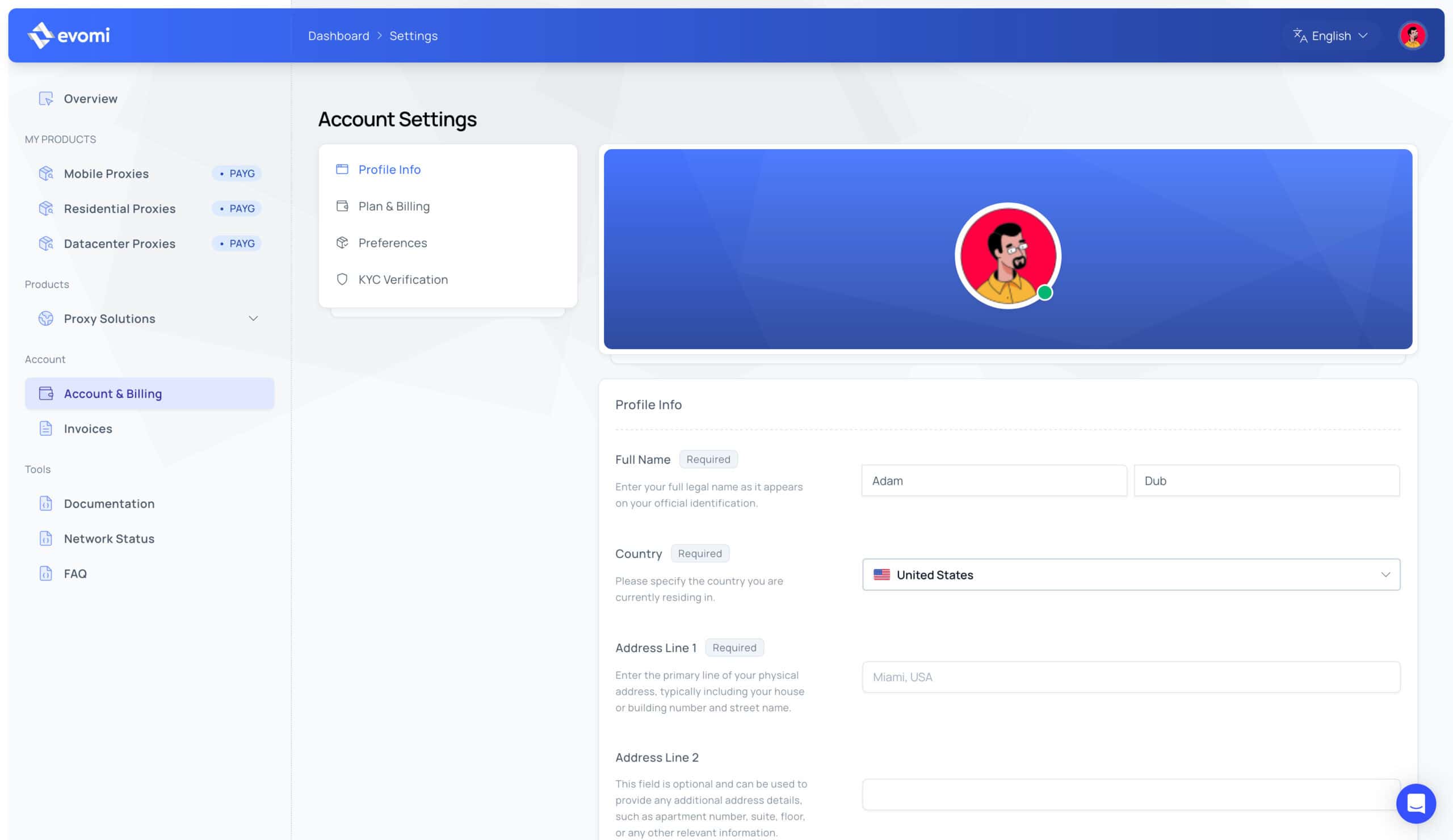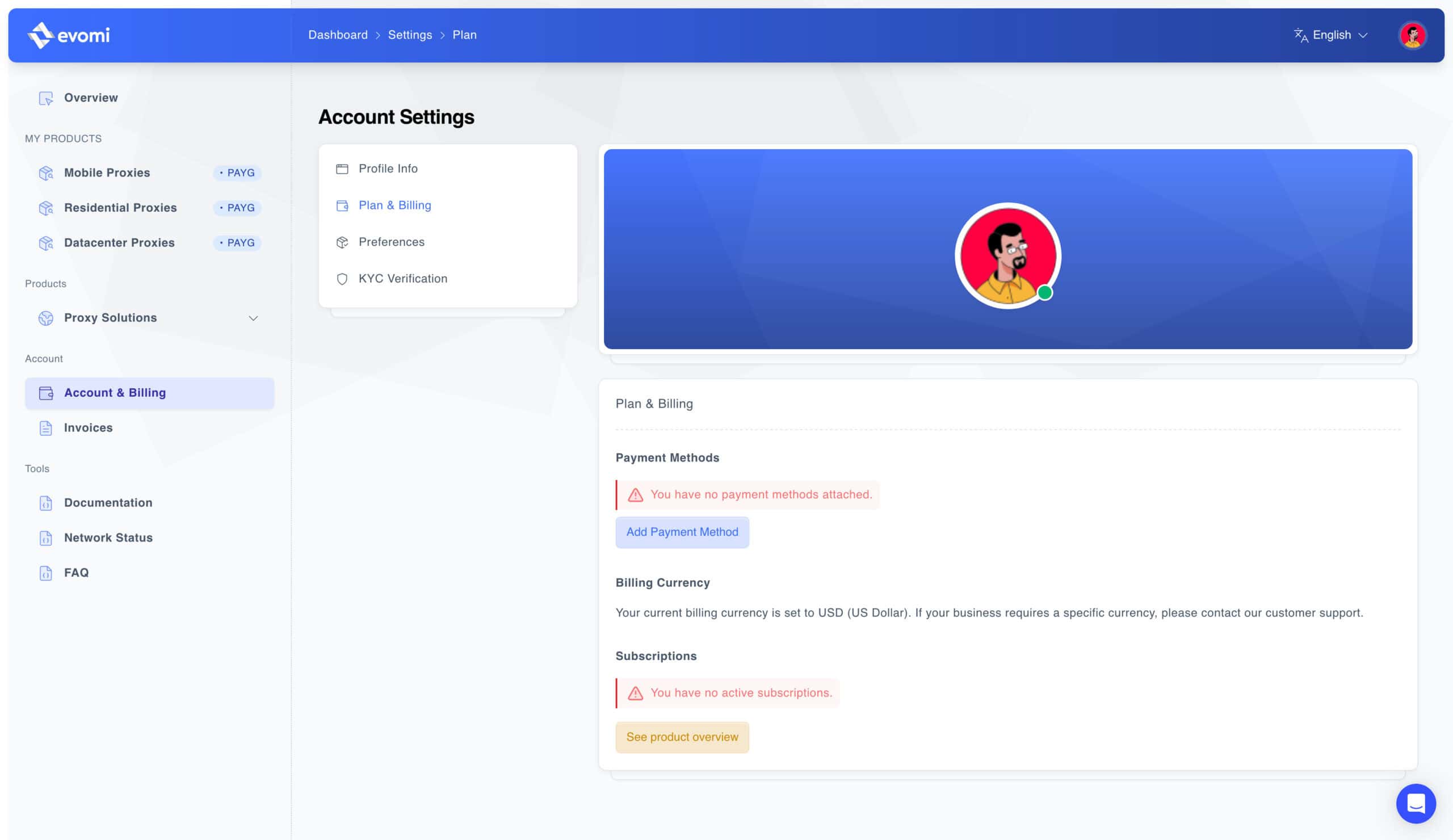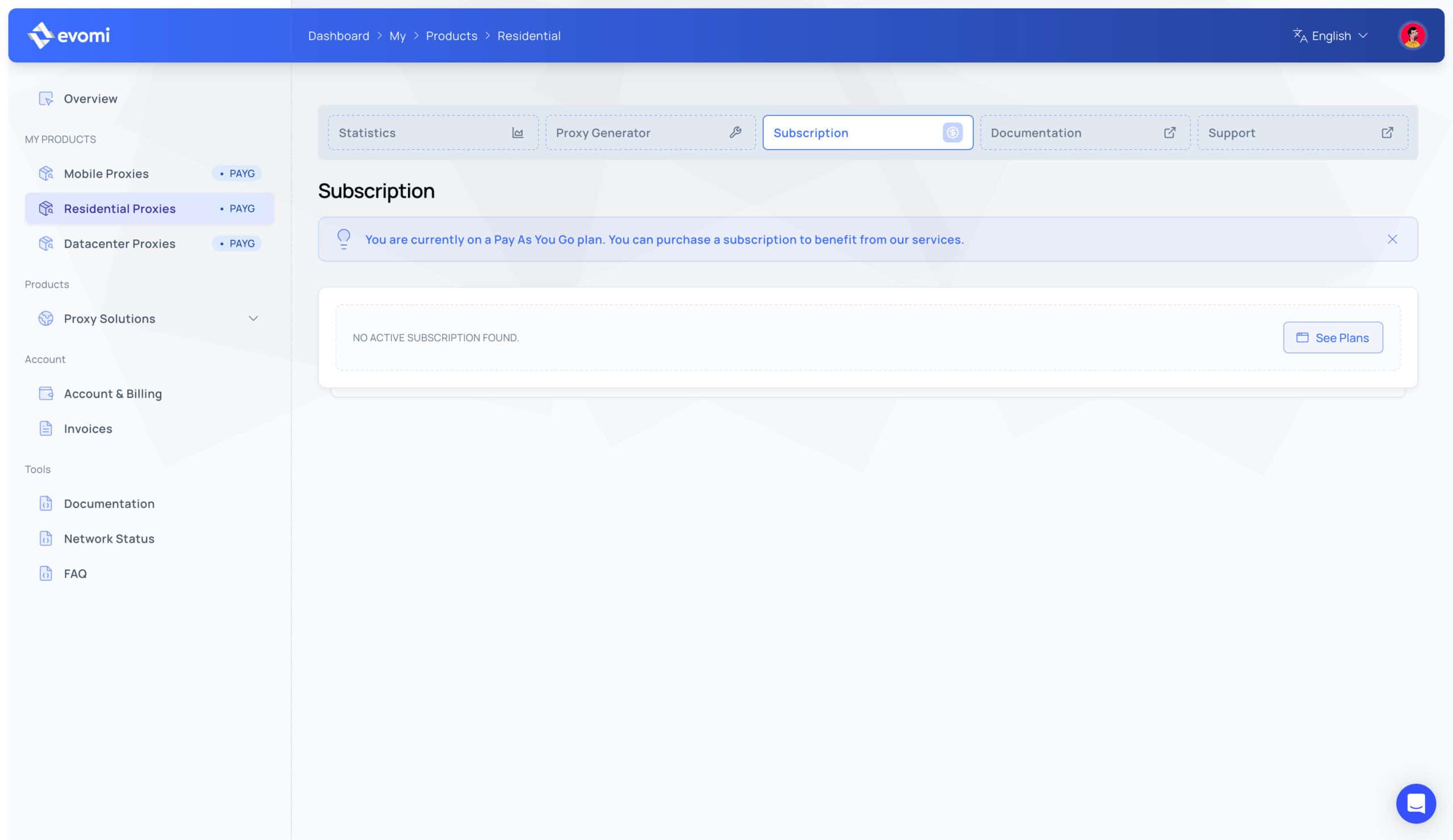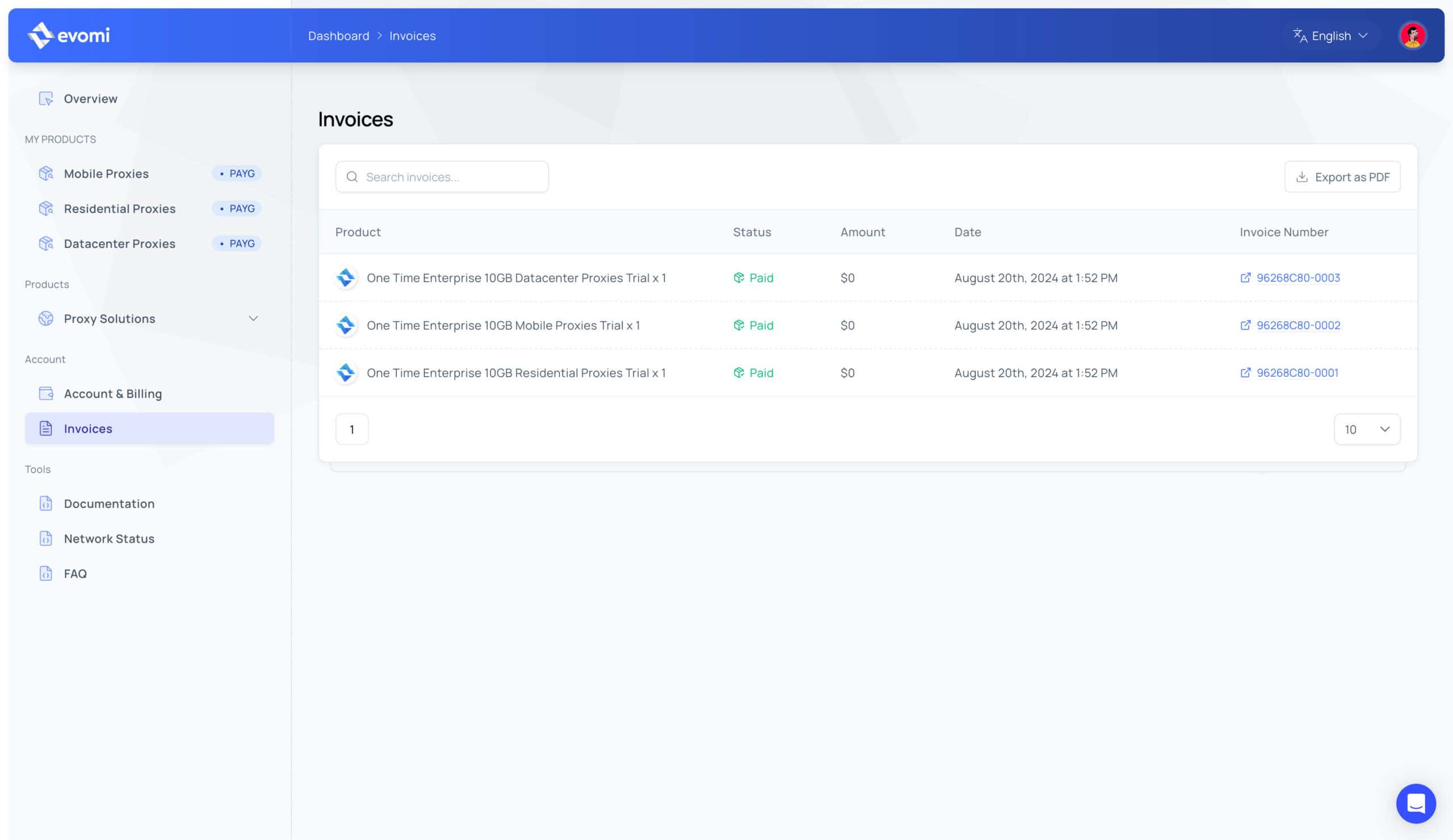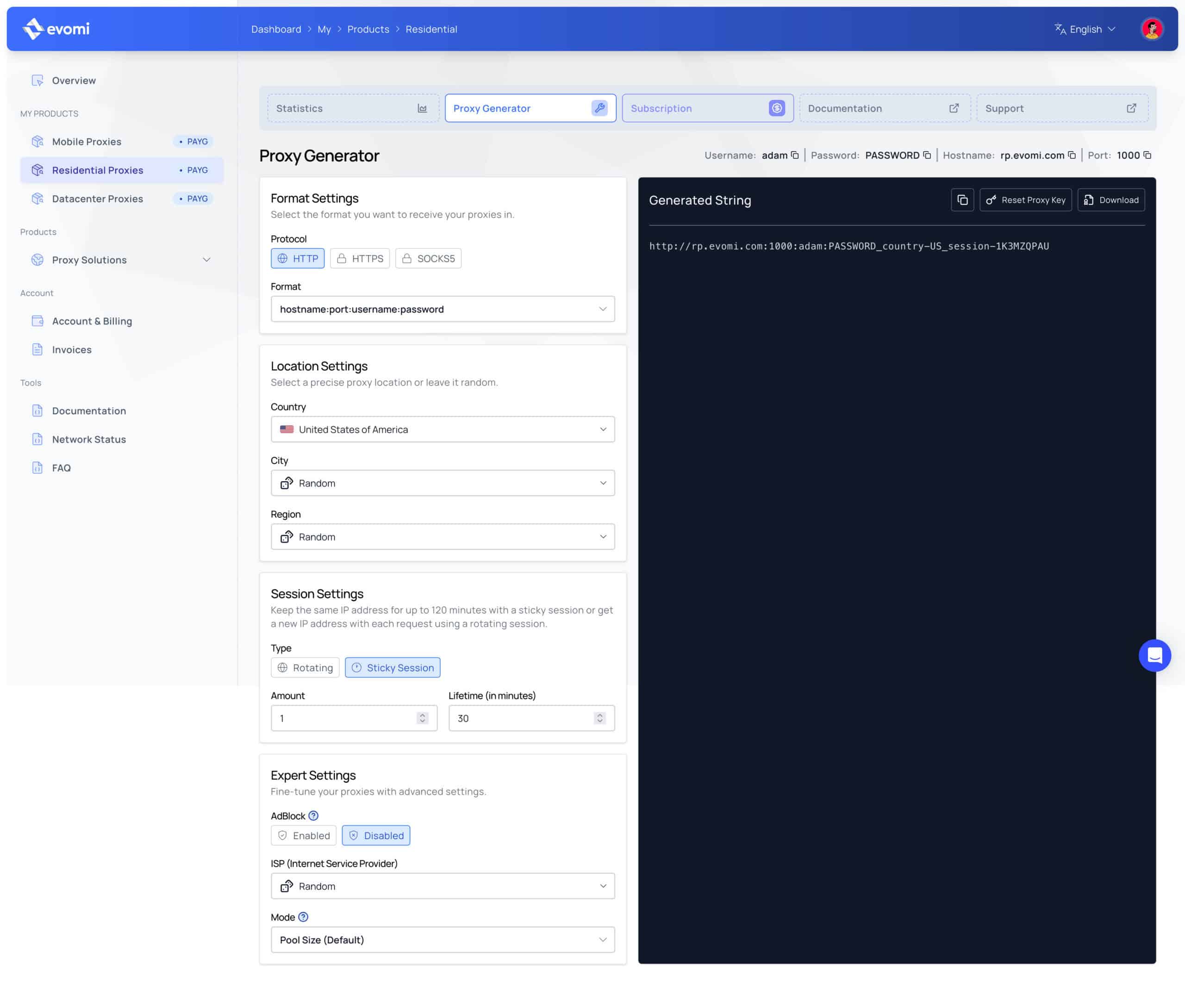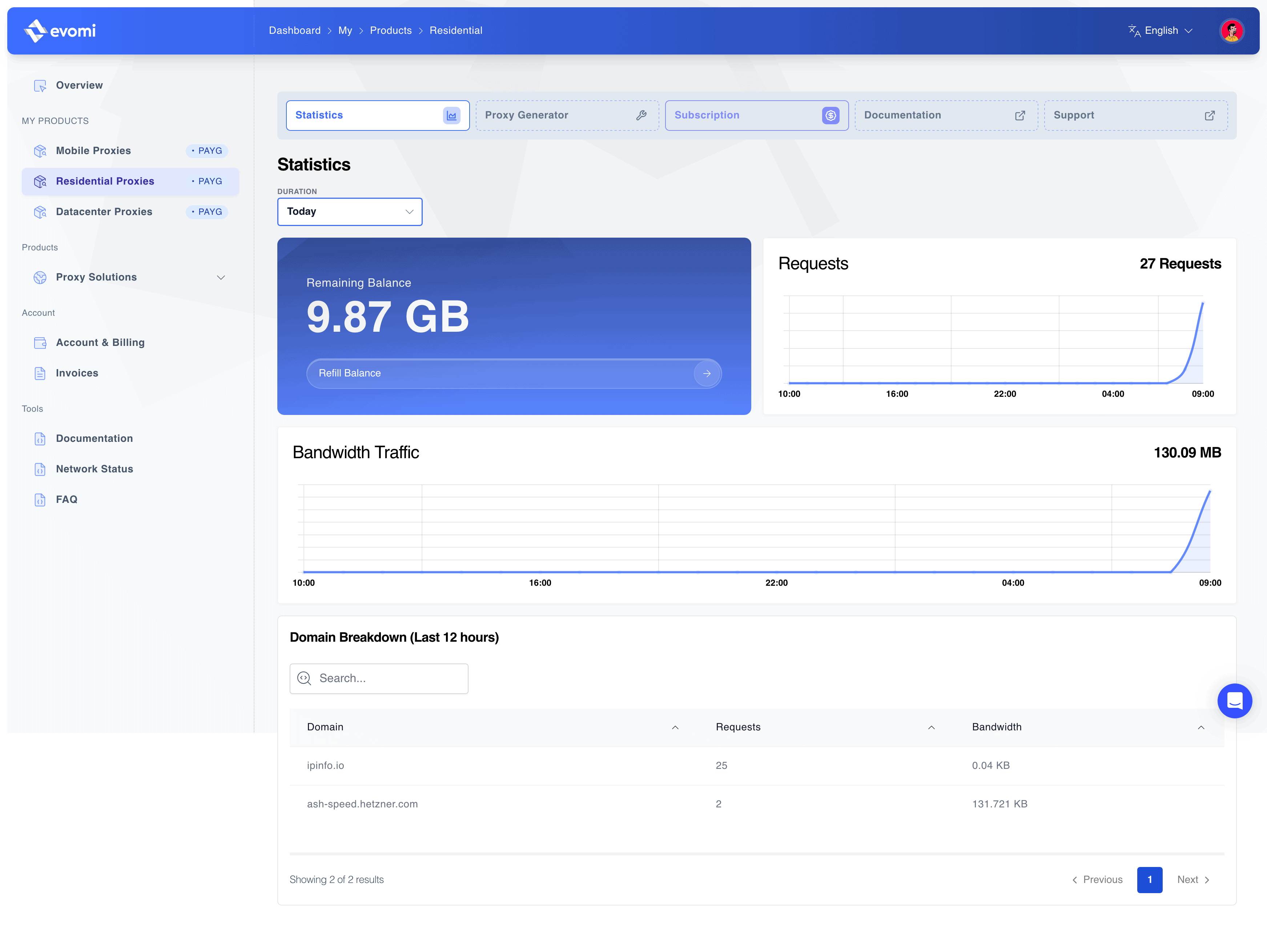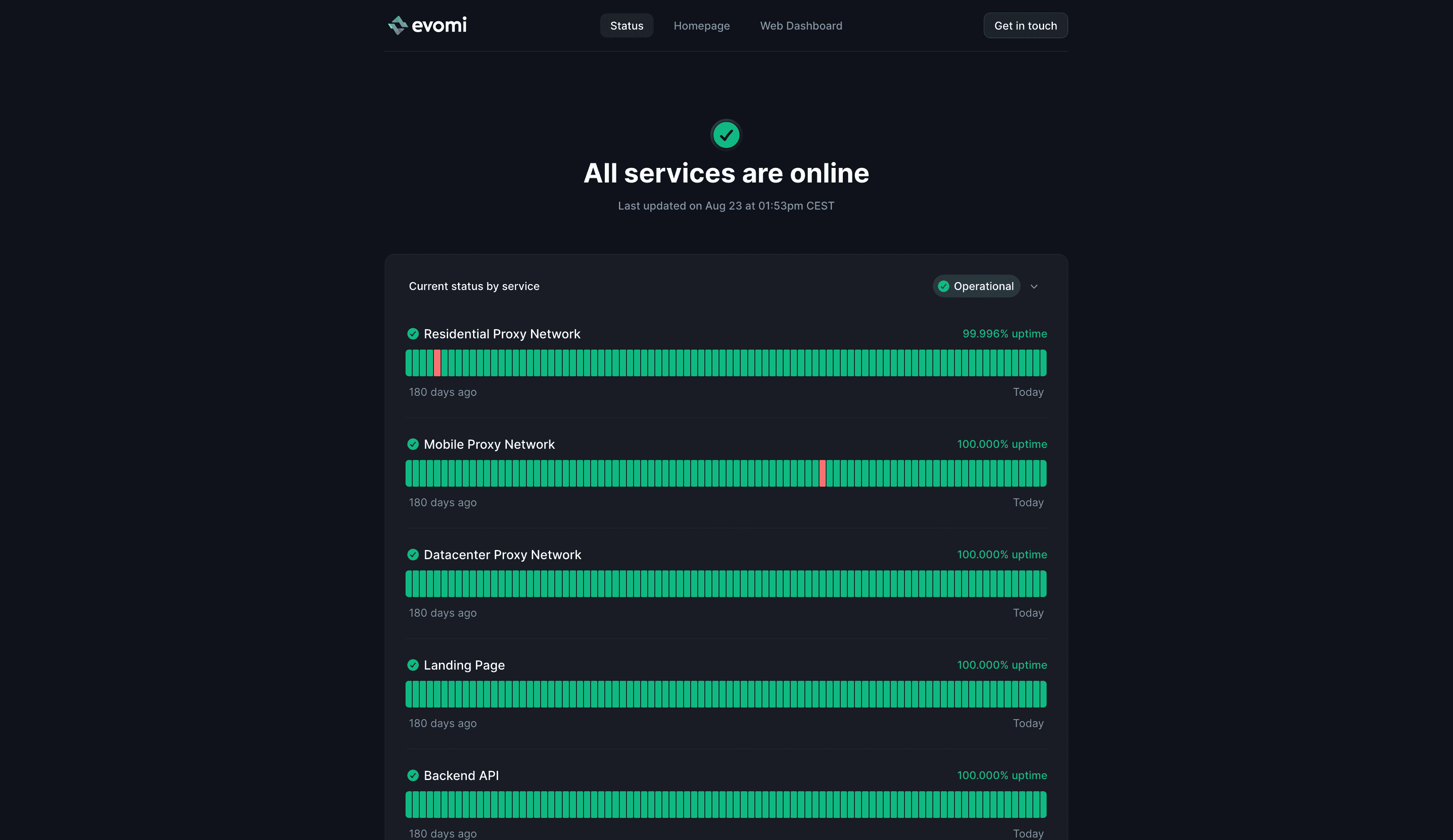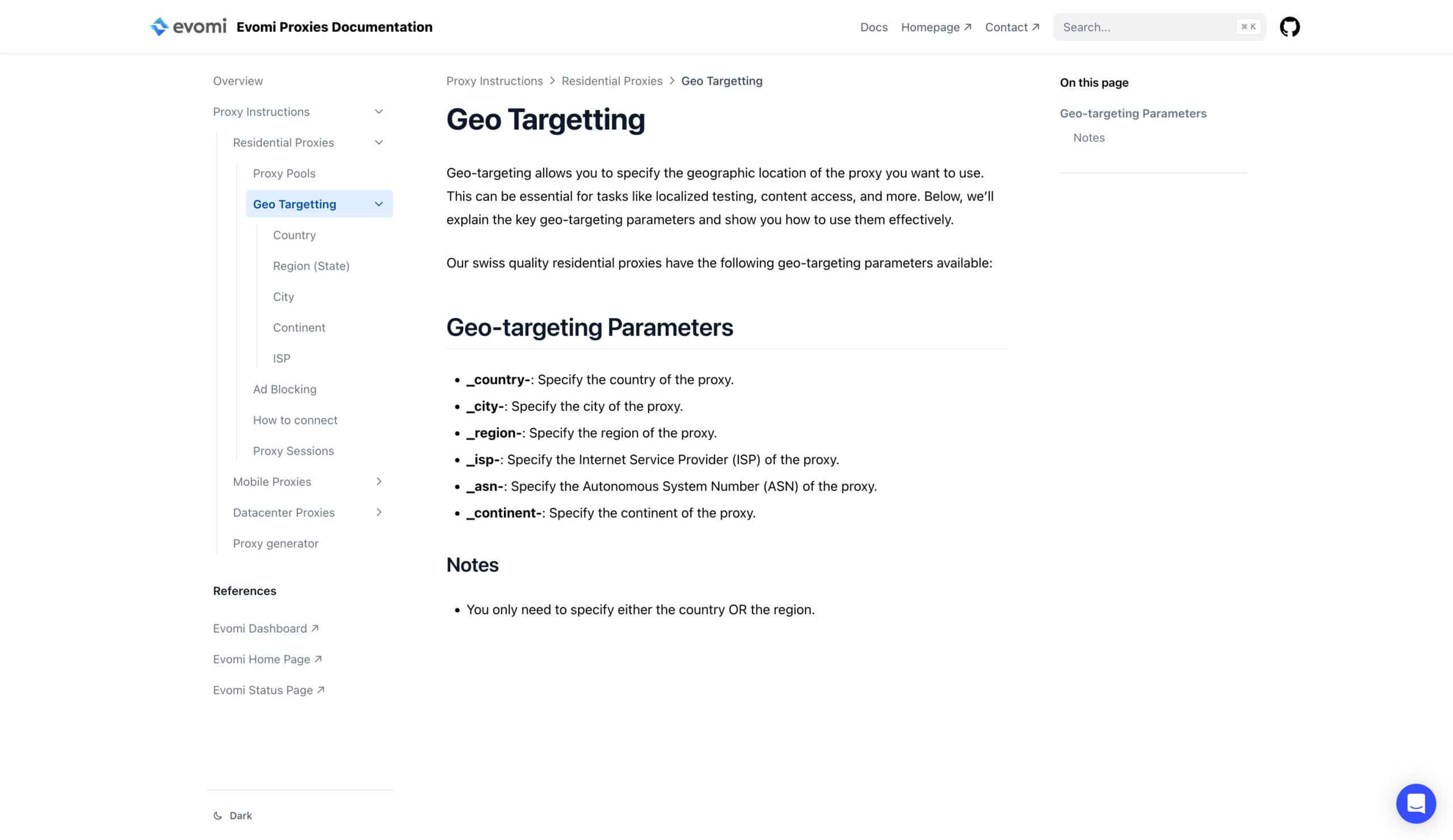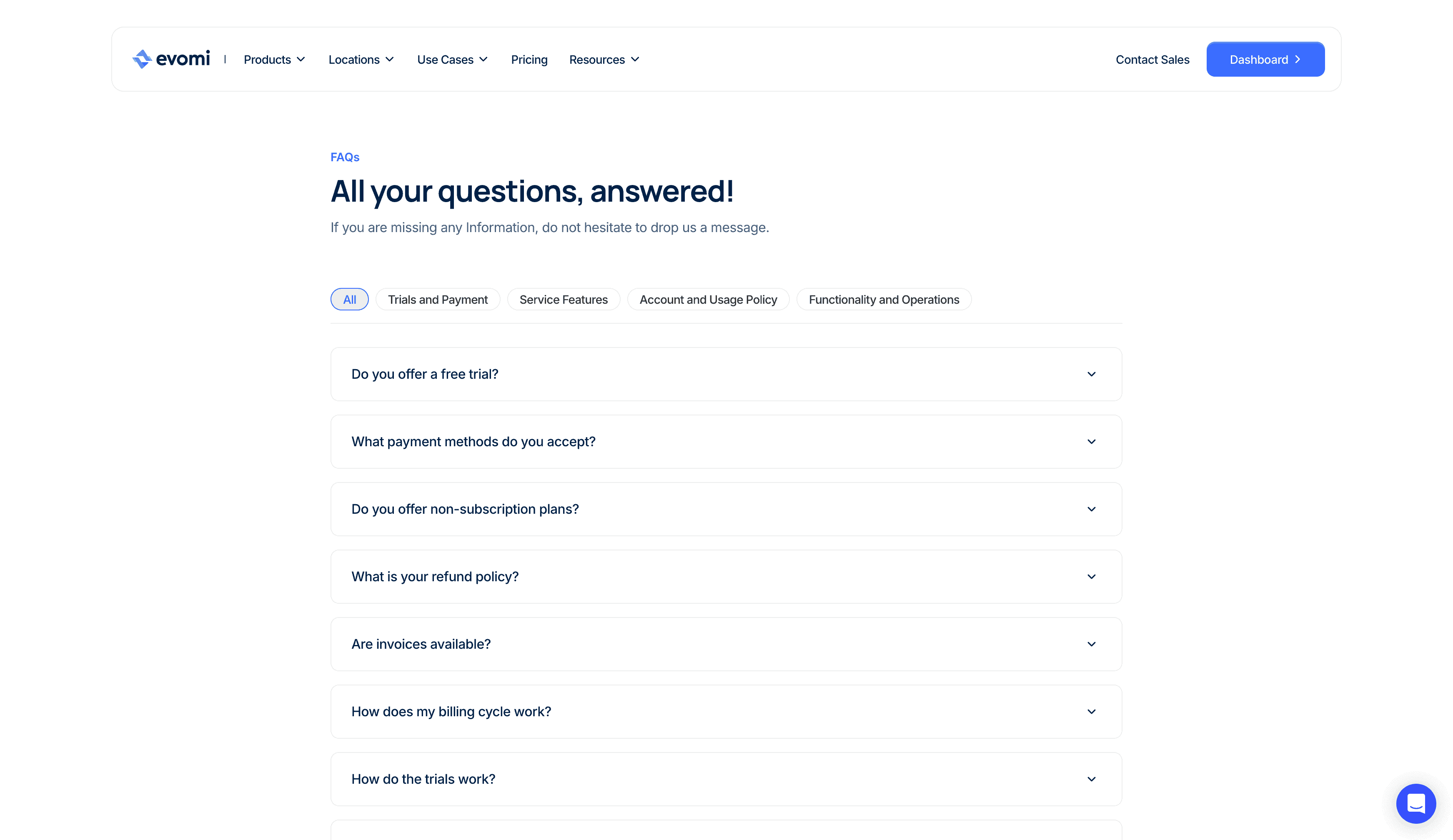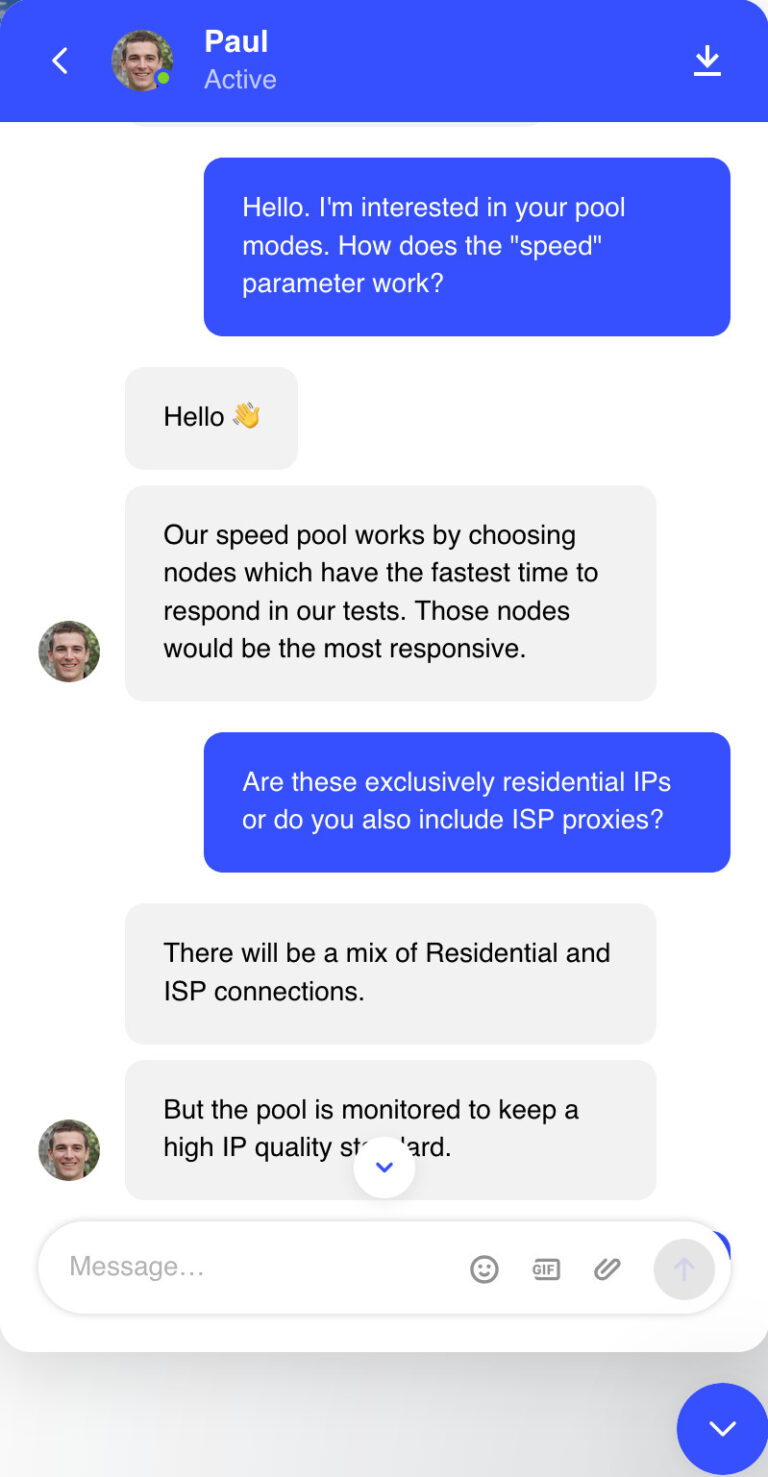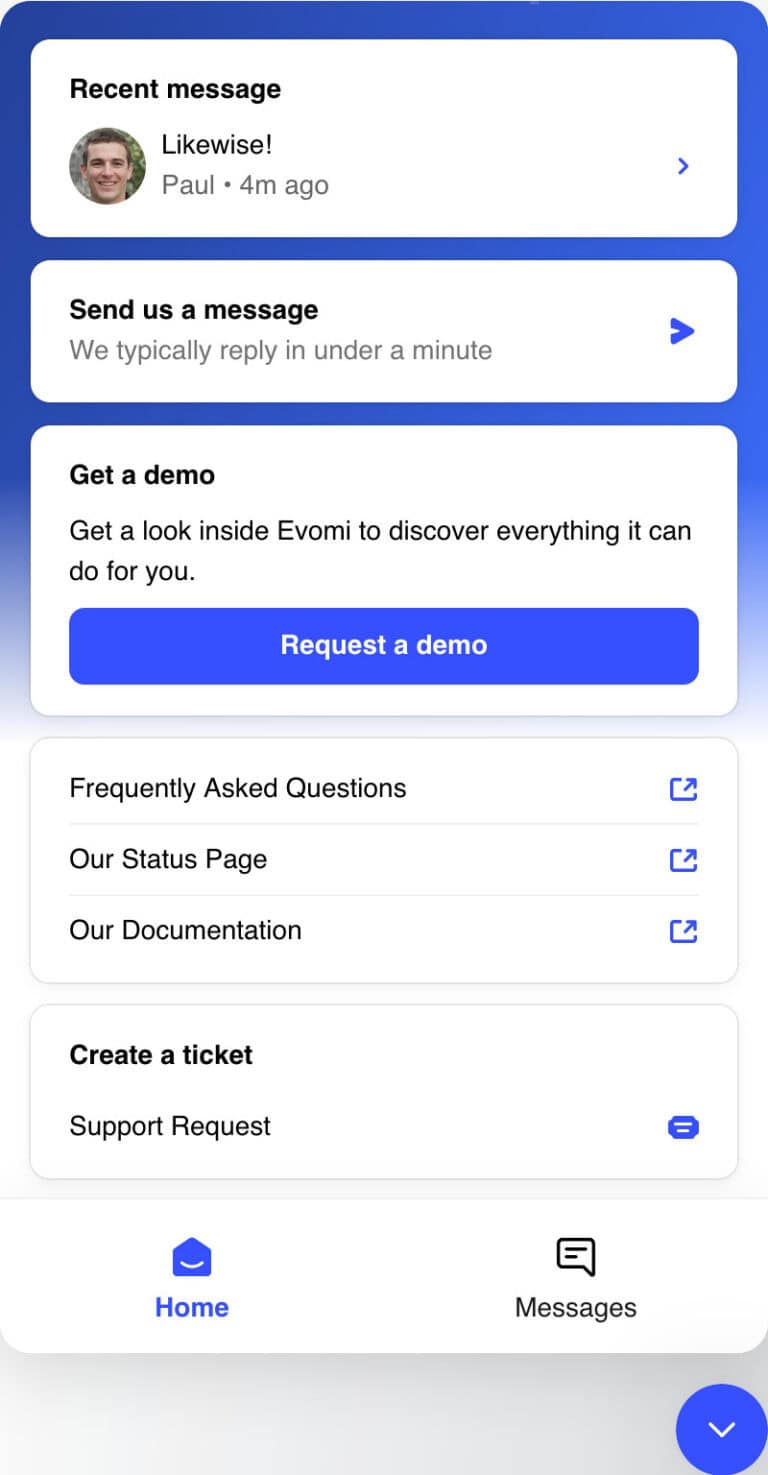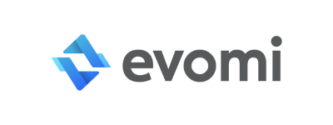
Evomi Preview
Evomi’s performant proxy pools, polished brand image, and competitive prices make it a strong option for your next small to mid scale project.
Nowadays, there’s no shortage of proxy providers. But we’ll always find a place for companies with their own proxy network. And that’s exactly what Evomi claims to offer.
Couple this with some competent brand building (Swiss company, ethics, clear communication), and maybe we’re looking at a winner for individual and small business use? Or perhaps it’s all smoke and mirrors, especially considering how young the provider still is?
Let’s find out! We had a chance to benchmark four of Evomi’s proxy products. These are our impressions.
News about Evomi
-
By Adam Dubois
- Provider News
-
By Adam Dubois
- Provider News
-
By Adam Dubois
- Provider News
General Information
- Country: Switzerland
- Founded: 2024
- Employees (LinkedIn): 5-10
- Proxy networks: Datacenter, residential, mobile
- Supporting tools: ❌
- Price range: Lower mid-range
- Starting price: $0.70
- Payment methods: Credit card, PayPal. Pay as you go only: Google Pay, wire transfer, cryptocurrency, local payments through PayPro)
- Trial: Trial & money-back guarantee
Evomi is one of the newer companies in the market. It sells access to multiple proxy networks, with plans to launch web scraper APIs in the future. The provider is located in Switzerland, and its website makes sure that you’re well aware of this fact.
Despite being around for a short while, Evomi has already done a lot of groundwork to present itself as a serious business. The website radiates solidity, there’s company information – even a phone number! – SLAs, and a page for ethical proxy sourcing practices. You can find most employees on LinkedIn.
Evomi has also had the time to do some brand building: startups can apply to get free traffic using the provider’s Startup Program. In addition, Evomi is a member of the Ethical Web Data Collection Initiative, which advocates for responsible businesses practices in the industry.
As such, the company tries to be transparent about how it acquires proxies. A good part (even datacenter IPs) is sourced via Earn.fm (a bandwidth sharing application) and an SDK. The rest are likely resold. Having an in-house proxy network is a strong value proposition if the provider manages to flesh it out well.
While Evomi itself is new, the people behind it have been around. They claim to have been selling proxies for more than six years. Specifically, we found links to InfiniteProxies, which was established in 2019. After bringing this up, we were told that the projects may have been but were no longer related.
All in all, Evomi creates the impression of a solid company, even if some efforts (like the AI-generated image of an idyllic looking Swiss landscape) go a tad too far.
Evomi Proxy Networks
Evomi sells access to four proxy networks: datacenter, residential, mobile, and ISP (also called static residential). The first three give you access to large pools of IPs with rotation and traffic-based pricing. The fourth product comes in shared or dedicated lists.
Evomi’s residential proxy network branches out into two further products. One is called Premium residential proxies, and it includes full functionality by default. The second is Core residential proxies – it starts off very cheap in a barebones configuration but gets more expensive as you enable features.

We’ll be looking at Evomi’s rotating proxy networks. Since they all use the same system, it makes sense to review all at once.
Pool Size & Coverage
| Datacenter | Residential | Mobile | |
| Advertised pool size | Not specified | Not specified | Not specified |
| Locations | 100+ | 150+ | 150+ |
| Filtering | Random, continent, country | Random, continent, country, state, city, ASN, ISP, ZIP code | Random, continent, country, state, ISP |
| Other filters | Latency, fraud score, device, minimum uptime, response time, QUIC, UDP, extended pool, ad blocking |
Evomi doesn’t really mention how many proxies it controls. You could try to gauge the numbers by visiting the website’s location pages: for example, the one for US proxies advertises nearly 10 million IPs. But this isn’t really convenient, and from our experience, such pages are rarely updated.
All three products have broad location coverage, especially the datacenter proxy network. However, these proxies too are likely sourced through Evomi’s bandwidth sharing app, so their availability is hard to predict. As a result, the datacenter IPs are best suited for web scraping and similar tasks.
The location filtering options depend on the product. For the most part, they’re in line with industry standards. The Core residential plans, however, includes an exceptional number of filters which range from more IPs and device type selection to specifying latency thresholds. For some reason, QUIC and UDP come as separate toggles, and you can’t enable any other filter if you choose to increase the proxy pool.
It’s nice that you’re allowed to select multiple countries at once. In this case, more granular location filters, such as state or city, become unavailable.
Features
- Connection method: Gateway address
- Rotation: Every request, 1-120 mins, long sessions
- Protocols: HTTP, HTTPS, SOCKS5
- Concurrency: Unlimited threads & ports
- Traffic: Plan based
- Authentication: Credentials
Evomi’s proxy networks give you a backconnect gateway address that connects you to the proxy pool. The provider doesn’t specify the locations of its gateway servers.
The proxies rotate by default. The interval can be every connection request, which is convenient for web scraping. Or, you can create a session with an option to specify a lifetime between one and 120 minutes. The provider also offers an option to establish a hard session, which holds onto the same IP for as long as it remains online.
The number of ports and threads isn’t limited, so you can scrape to your heart’s content. However, if your software doesn’t have username and password authentication, you’ll be out of luck: IP whitelisting isn’t available. There are ways around this – but they require jumping through hoops, which we’d prefer to avoid.
Integration & Use
- Basic request: USERNAME:PASSWORD@dcp.evomi.com:2000
- Using filters: USERNAME:PASSWORD_country-US_region-california_city-san.francisco_isp-attenterprisesl@core-residential.evomi.com:1000
- Establishing sessions: USERNAME:[email protected]:2000
With Evomi’s proxies, the gateway address doesn’t change, while filters and sticky sessions are added to the password. The port number generally remains the same as well – the only time you have to modify it is when you choose a different connection protocol.
Pricing Plans
| Datacenter | Premium residential | Core residential | Mobile | |
| Model | Pay as you go, subscription | |||
| Format | Traffic | |||
| Modifiers | (Core residential) Proxy filters – up to 15x price multiplier | |||
| Starting price | $13.5 for 30 GB ($0.45/GB) | $16 for 4 GB ($4/GB) | $15 for 15 GB ($1/GB) | $16 for 4 GB ($4/GB) |
| Trial | Available | |||
Evomi charges for traffic use. You can buy some and use it at your own pace or subscribe for better rates. The difference is small at first but increases significantly with scale.
Following the recent trend, Evomi’s Premium residential and mobile proxies cost the same. The datacenter product, on the other hand, is up to ten times cheaper per gigabyte.
In a broader context, Evomi’s Premium residential proxies cost more than direct alternatives like IPRoyal or Decodo, while the datacenter and mobile products are more competitive.
The Core residential product warrants a separate mention. Its base price is extremely cheap ($0.99/GB PAYG or $0.49/GB with a plan) if you’re happy with the included functionality. But enabling extra features multiplies traffic use, up to 15x in extreme scenarios.
For example, adding more IPs costs 6x, ASN targeting makes the service deplete traffic four times faster, and so on. Considering that the rates of this product don’t scale, Evomi quickly becomes more expensive than even premium providers if you’re not careful.
If, for some reason, the proxies fail to meet your needs, Evomi has a money-back guarantee. It applies if you’ve used less than 1 GB or 10% of the plan’s allowance.
Performance Benchmarks
We last tested Evomi’s proxy networks in April 2025, for the annual Proxy Market Research.
Pool size & composition
| Gateway | Requests | Unique IPs (Core / Premium) | Residential %* (Core / Premium) |
| Global | 1.2M over 21 days | 733,405 / 807,763 | 95.09% / 95.60% |
| US | 560k over 14 days | 162,418 / 331,882 | 95.33% / 97.70% |
| UK | 560k over 14 days | 102,467 / 202,588 | 97.46% / 99.07% |
| EU** | 1.2M over 14 days | 260,031 / 449,250 | 95.06% / 96.97% |
| Brazil | 560k over 14 days | 250,425 / 268,078 | 96.06% / 96.38% |
| India | 560k over 14 days | 96,073 / 171,122 | 96.42% / 95.93% |
| Australia | 140k over 7 days | 12,853 / 29,124 | 97.11% / 98.46% |
* IP2Location database, Usage type data point, ISP, ISP/MOB, MOB IPs.
** Combines Germany, France, Spain, Italy, the Netherlands.
Comparison with other providers
Evomi’s proxy pools were respectably large and predominantly residential. The Premium residential network returned around twice as many IPs when targeting individual countries.
Infrastructure performance
Requests: Same as the pool test (140k to 1.2M per gateway)
Target: Nearest server of a global CDN (~6 KB response size)
| Gateway | Our server location | Avg. success rate (Core / Premium) | Avg. response time (Core / Premium) |
| Global | DE | 99.12% / 99.44% | 0.98 s / 0.93 s |
| US | US | 99.56% / 99.65% | 0.77 s / 0.97 s |
| UK | DE | 99.47% / 99.77% | 0.43 s / 0.63 s |
| EU | DE | 99.27% / 99.57% | 0.49 s / 0.70 s |
| Brazil | US | 99.83% / 99.70% | 0.70 s / 1.22 s |
| India | SG | 98.61% / 99.08% | 2.24 s / 2.55 s |
| Australia | SG | 98.33% / 99.30% | 2.29 s / 2.42 s |
Comparison with other providers
We can’t fault Evomi’s infrastructure performance – both the success rate and response time were competitive. There are two things to note, though. One, the provider doesn’t seem to have gateway servers in the Asia-Pacific region, hence the slow response times. And two, the Core pool was actually faster in most scenarios.
Response time with a 2 MB page (Premium residential)
Requests: 15,000 with the Global gateway, 5,000 with the US gateway
Target: Nearest server of a global CDN
| Gateway | Our server location | Avg. response time |
| Global | DE | 6.08 s |
| US | US | 4.95 s |
Comparison with other providers
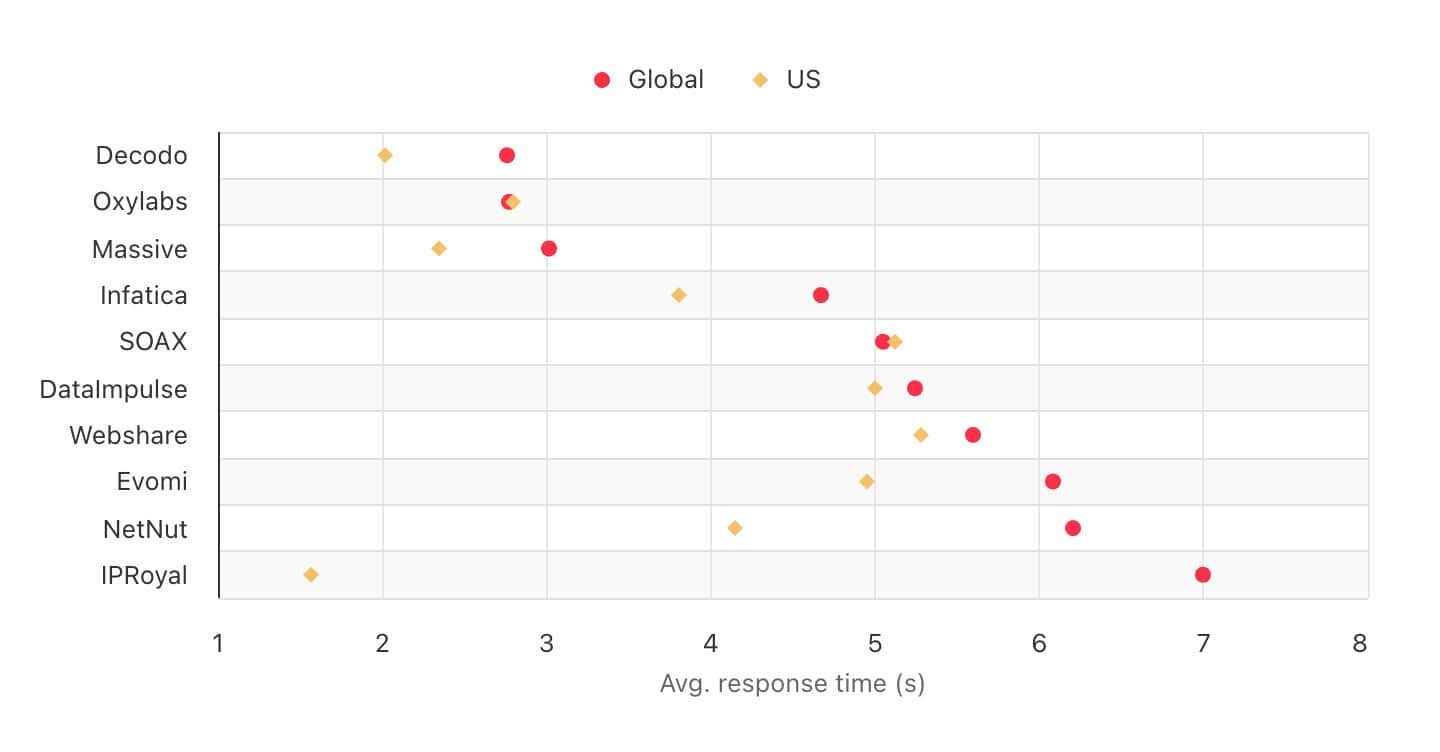
When we scraped larger page sizes, Evomi found itself among the slower providers. This applied both to the unfiltered and US pools.
Performance with popular targets (Premium residential)
Requests: ~2,600 per target
Location: US (both the gateway and our server)
| Avg. success rate | Avg. response time | |
| Amazon | 93.36% | 4.50 s |
| 62.08% | 4.37 s | |
| 79.35% | 5.26 s | |
| Total | 78.26% | 4.71 s |
Comparison with other providers
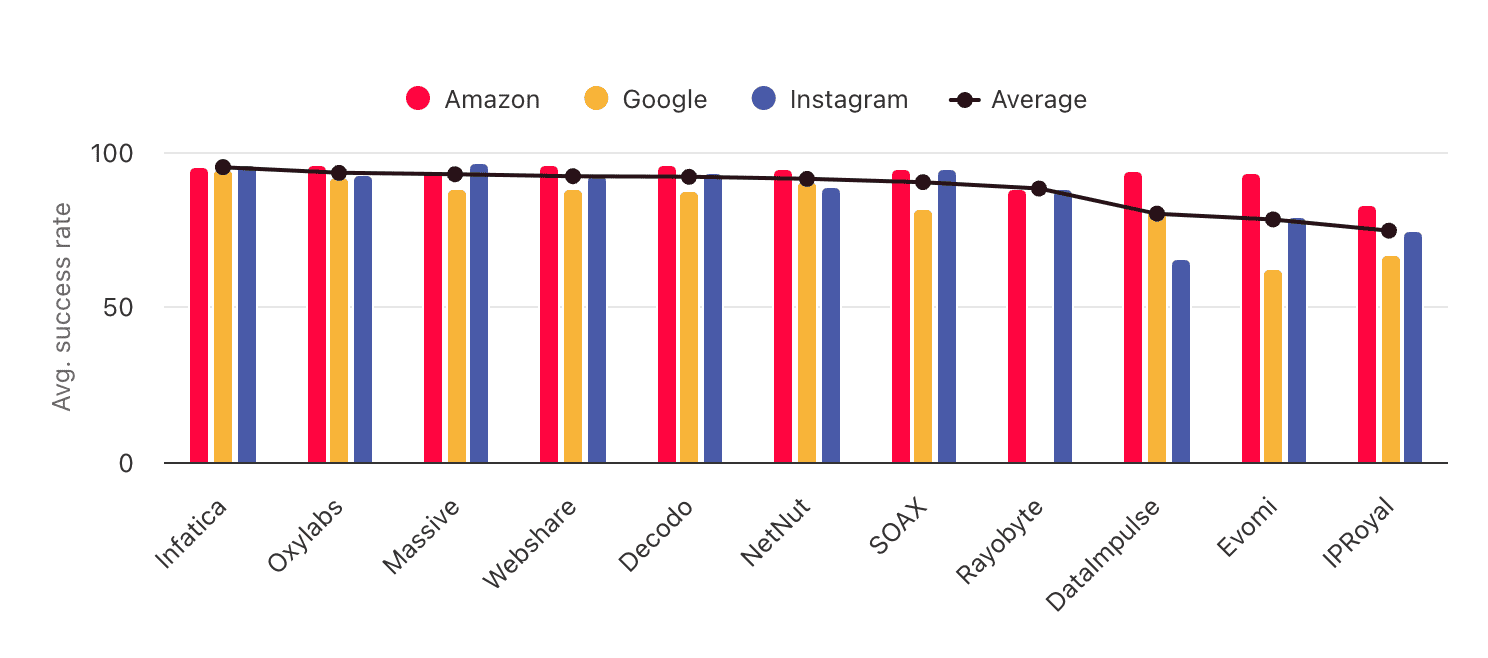
Strong infrastructure performance didn’t help Evomi much when facing popular websites. We assume that these residential proxy servers had seen more abuse than most competing providers.
Pool size & composition
| Gateway | Requests | Unique IPs | Mobile %* |
| Global | 280k over 14 days | 153,881 | 97.04% |
| US | 280k over 14 days | 27,439 | 99.17% |
| UK | 280k over 14 days | 13,053 | 98.97% |
| EU** | 280k over 14 days | 33,180 | 93.02% |
| Brazil | 280k over 14 days | 15,715 | 99.05% |
| India | 280k over 14 days | 41,285 | 99.86% |
| Australia | 140k over 7 days | 1,224 | 98.69% |
* IP2Location database, Usage type data point ( ISP/MOB, MOB IPs)
** Combines Germany, France, Spain, Italy, the Netherlands.
Evomi’s mobile proxy pool is still modest – for comparison, NetNut had fives times, while Oxylabs and DataImpulse nearly four times as many IPs in the US. Still, these were almost exclusively mobile devices on mobile networks.
Infrastructure performance
Requests: Same as the pool test (140k to 280k)
Target: Nearest server of a global CDN (~6 KB page size)
| Gateway | Our server location | Avg. success rate | Avg. response time |
| Global | DE | 99.79% | 1.32 s |
| US | US | 99.94% | 0.61 s |
| UK | DE | 99.81% | 0.78 s |
| EU | DE | 99.83% | 0.73 s |
| Brazil | US | 99.82% | 0.91 s |
| India | SG | 99.53% | 2.48 s |
| Australia | SG | 99.79% | 2.28 s |
Evomi performed very well in our synthetic benchmarks. Its weakest point was once again APAC countries like India and Australia, which had a slow response time.
Pool size & infrastructure performance
Target: Nearest server of a global CDN (~6 KB page size)
Our server location: US
| Gateway | Requests | Unique IPs | Avg. success rate | Avg. response time |
| US | 70k over 7 days | 26,573 | 99.94% | 0.31 s |
For a peer-to-peer pool, Evomi’s datacenter proxies displayed strong infrastructure performance. What’s more, we found over 26,000 unique IPs throughout seven days, which resulted in 38% uniqueness – truly not a bad result.
Download speed
Target: Hetzner’s 100 MB Ashburn benchmark
Proxies tested: 10
| Avg. without proxies | Average | Median | Slowest IP |
| 52.93 MB/s | 4.34 MB/s | 1.50 MB/s | 0.08 MB/s |
Evomi’s datacenter proxies had very low throughput and high variance. The slowest of the 10 proxy servers was barely functional and completely unsuitable for any traffic-intensive task.
Performance with popular targets
Requests: ~2,600 per target
Location: US (both the gateway and our server)
| Avg. success rate | Avg. response time | |
| Amazon | 80.68% | 3.17 s |
| 61.11% | 4.37 s | |
| Total | 70.90% | 3.77 s |
The proxy pool did well with popular targets. It experienced some CAPTCHAs on Google, but this is to be expected with shared datacenter IPs.
How to Use Evomi
Registration
To register, you’ll need to enter your full name, email address, and password. Alternatively, there’s an option to sign up with a Google account.
KYC & Usage Policies
While Evomi doesn’t ask for KYC information during registration, you may still have to complete the KYC procedure later on. This depends on whether Evomi notices suspicious behavior. The verifier is Stripe – it will ask for a photo ID and selfie.
Evomi doesn’t have a list of blocked targets, but we do know that it prohibits access to financial, governmental domains, and mailing websites. They are unlockable with extra KYC.
Dashboard
Evomi has a dashboard for managing subscriptions, interacting with its products, tracking usage, and getting help.
The dashboard is clean, well-designed, and available in four languages: English, Russian, Chinese, and German.
We have few gripes about it. Well, maybe the main page could be more useful – now, it only serves to sell products, whether you have them already or not.
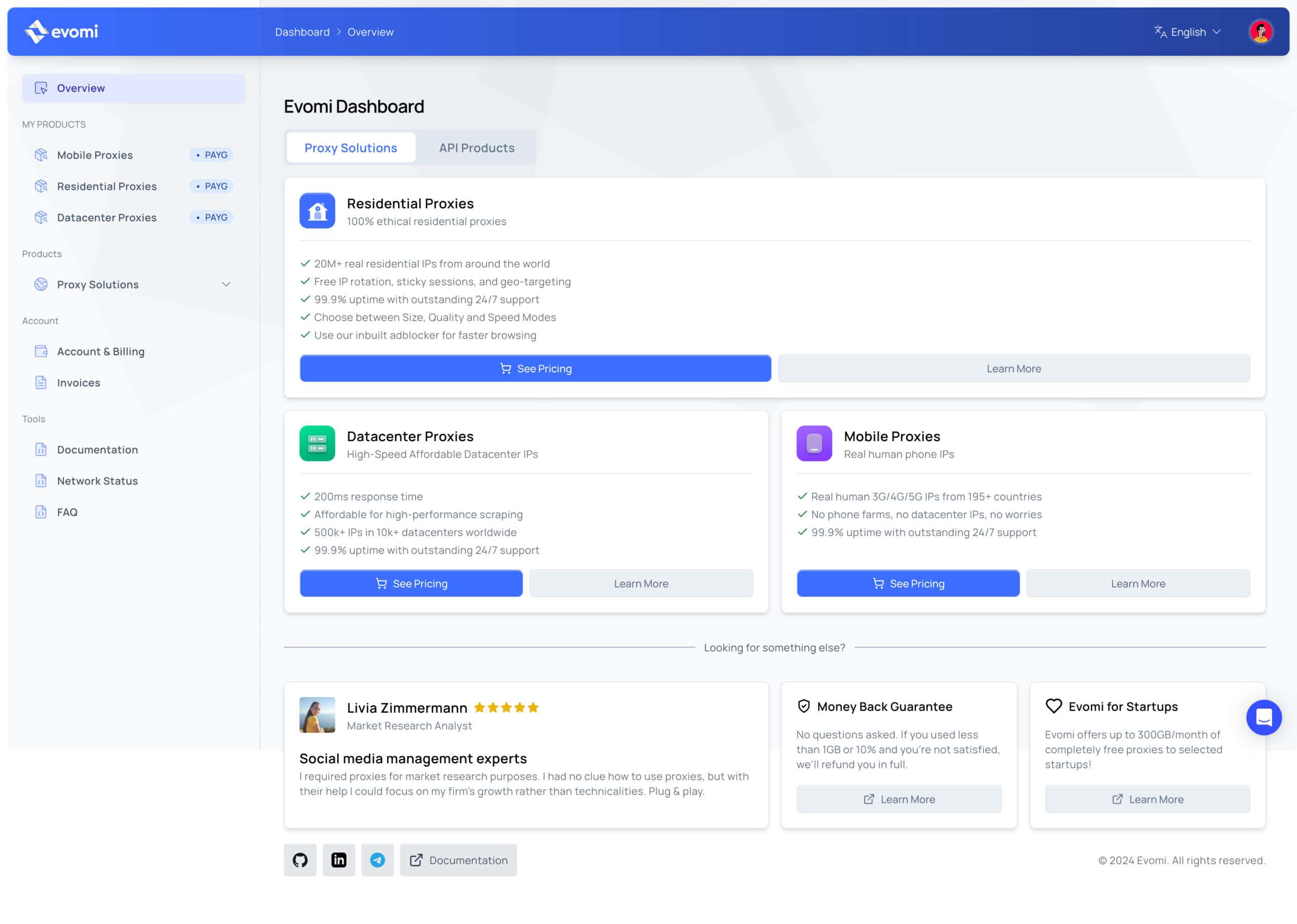
Evomi’s dashboard lets you add payment information (card or PayPal), manage subscriptions, and download generated invoices from Stripe. Subscriptions renew automatically, and it’s possible to buy extra traffic at the plan’s rate.
There was no wallet functionality when we last tested the provider, which unfortunately means that each action will require making a new transaction.
Evomi has a proxy generator widget. It lets you choose various configurations (protocol, filtering and rotation parameters, a pool mode), and then spits out a list of entry points in several formats. The widget is simple to work with.
Having said that, you can’t really change a username by yourself or even pick a custom password – the system generates it upon request. Regular customers also don’t get access to sub-users, which complicates work with proxies in a team setting.
Evomi’s usage statistics are separated by product. You get two graphs – one for traffic, the second for requests made – which can be filtered for today, last three, seven, 14, or 30 days. There’s also a table for statistics by domain, though it only shows aggregated requests made in the last 12 hours.
All in all, Evomi’s usage information is basic but competent. It may not always be fast to load, but that’s because the data is fetched live.
For more general information, the provider has a network status page that shows uptime statistics and outages for the last 180 days.
API Access
Evomi has a management API, but it’s only available to resellers that buy at least 5 TB of data.
Documentation
Evomi offers a documentation hub with information about each product and an FAQ to answer the main questions surrounding the service. Both are decently fleshed out.
In the middle of 2025, the integration instructions covered major operating systems and web scraping libraries. However, if you wanted to pair the proxies with an antidetect browser or another third-party tool, you’d have to look elsewhere.
Hands-On Support
Evomi’s customer support works 24/7, with the main channel being live chat. Powered by Intercom, the chat also has ticketing functionality, though it’s not obvious at first sight.
Large customers get more options: a dedicated account manager available through phone and assistance via Slack.
We tested the live chat during daytime in Europe. The agent responded within a few minutes and gave competent responses to the questions we had. While limited, this interaction left us satisfied with the service.
Conclusion
That was our detailed evaluation of Evomi. Overall, the provider’s polished brand image, competitive prices, and solid proxy network performance left us with a positive impression, especially compared to the many transient resellers out there.
At this point, Evomi still lacks the scale and features for enterprise use. However, it’s perfectly capable of powering many other tasks. This applies even more so if you’re looking to upgrade from entry-level providers like PacketStream, or if you need an alternative to mid-market vendors like SOAX or Rayobyte.
Evomi Alternatives

SOAX’s pricing is less flexible. But you’ll get more proxies and way more control over how they work.

Decodo is the mid-market choice to beat. Once again, for slightly more money, you’ll get more IPs and even better performance.

DataImpulse offers the same three proxy networks with extremely affordable rates and non-expiring traffic.
Recommended for:
Individuals or small to medium businesses looking for rotating proxies.
